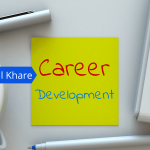As a career counselor, I see many people who are confused about what career they should take. Often it comes down to choosing between the “good” jobs and the “bad” jobs. Many times the confusion is caused by lack of career counseling. Many people do not feel comfortable asking their career counselor which career path they should take. This article will show you how to get your job counseling right and make the most of your career counseling sessions.
When you work with a career counselor, the goal is for you to make the best decision for your future. Many career counselors spend a lot of time telling their clients what they should be doing (packing clothes) and what they should not be doing (eating peanut butter and jelly sandwiches). The career counselor does not spend time telling their client what they should be doing (making money). This is all well and good, but the client needs to know what they shouldn’t be doing (eating peanut butter and jelly sandwiches) because the career counselor is not advising them to do that. Career counselors need to focus on information processing. They must know which information they should share with the client and which they should keep to themselves.
This information is not something that just flows out of your ears. When we have to learn something new, we often have to think very hard and really evaluate the information that we receive. We cannot just accept the information at face value. We must critically evaluate the data to make sure that it supports our particular theory about the job. Otherwise we will simply make hasty decisions and waste precious time.
The process of cognitive information processing is often times complicated for people who have no formal training in information processing. Unfortunately, some career counselors make this task even more complicated by requiring applicants to send them multiple resumes (which is a great inconvenience!). This is not the best way to do this process. You might send the resumes to a number of different places in the hope that one of them will grab their attention and allow you to make an appointment.
How will you know if one resume is better than another? The answer is that you will not know unless you try. You also won’t know how well these resumes perform until you compare them to the job requirements. If your job description requires cognitive information processing skills, then it’s critical that you learn how to do this. Otherwise, you might be wasting your time and your professional reputation.
It’s really important to be able to explain the theory and the purpose of your career planning activities to clients. However, it is equally important to be able to identify those theories and purposes. When you do this, you are allowing yourself to be objective and to provide information in a non-pushy way. This will ensure that you don’t make the client feel pressured or sidetracked. When you’re providing information about information processing, the career counselor should encourage clients to ask questions that will help them understand the concepts better.
What if your career counselor never asks you to explain what you’re doing? For example, when you’re applying for career advancement, your career counselor may never inquire as to why you’re interested in cognitive information processing. You may never hear back from them. However, if you had made a presentation at a career expo, they may have asked you about it. Perhaps they even mentioned it during the interview!
The reality is that information processing needs to be part and parcel of every career counselor’s work. It doesn’t matter whether the career counselor is teaching, coaching, or working in a management position. All of us could benefit by learning more about information processing and using it to improve our careers. If the career counselor does not bring this up during the first meeting, it’s likely that they will not revisit that topic again with you throughout the course of your career.
Head office address:
Suite 1803, Al Moosa Tower 2,
Sheikh Zayed Road, Dubai, UAE.
Call for help:
+971 4 355 4850
Mail for information:
anilkhare3@gmail.com







